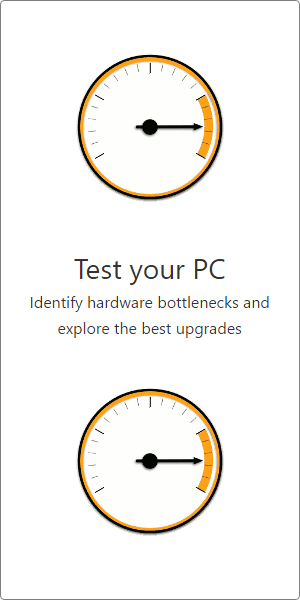Effective Speed
+32%
Poor: 76%
Great: 100%
SPEED RANK: 167th / 1468
Poor: 109%
Great: 124%
SPEED RANK: 32nd / 1468
| Effective Speed
Effective CPU Speed |
88.4 % | 117 % | Much faster effective speed. |
Average Score
+57%
Overclocked Score
+46%
Value & Sentiment
+704%
Nice To Haves
+134%
Conclusion
Average Bench 88.4%
Average Bench 117%
User Builds
746,287
2,190
Systems with these CPUs
Top Builds that include these CPUs
Frequently Asked Questions
Processors FAQ
ALL FAQs »

 CPU
CPU
